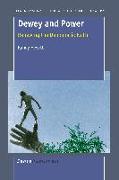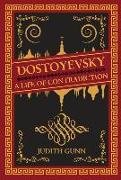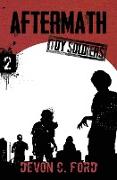- Start
- Dewey and Power: Renewing the Democratic Faith
Dewey and Power: Renewing the Democratic Faith
Angebote / Angebote:
Dewey and Power develops out of criticism that John Dewey's work lacks a sufficient concept of power, thus rendering his faith in an amelioristic sense of experience and a democratic ideal untenable. According to philosopher Cornel West, Dewey gives ameliorism its most mature social, political, and ethical justification. Alan Ryan suggests that Dewey represented "thinking America" at its best. Dewey's critics maintain, however, that this best is not good enough. If their criticism of Dewey goes unchallenged, one of the most intelligent, philosophically consistent visions of ethical behavior in a world shot through with difference, risk, danger, and change becomes damned. The upshot is lost faith in the idea that the give and take of mutual reference and pooled intelligence can lead to ever wider points of contact with each other that will enrich the significance of individual quests together. Furthermore, lost faith in ameliorism and democracy implies a lost faith in a democratic education. The purpose of this work, therefore, is to delineate the different senses in which Dewey is criticized about his alleged insufficient concept of power and to represent Dewey's work sufficiently enough to evaluate his critics' claims.First, Hewitt works out Dewey's concept of power as it comes out of his understanding of the psycho-physiological makeup of the human organism. Then he extends the analysis of power as it is psycho-physiologically interpreted to incorporate Dewey's ontological insights, especially that of the directing influence of social custom on habit, yielding a concept of power that includes both domination and liberation. He also draws out in explicit detail the relation between Dewey's sense of power and Dewey's faith in a democratic ideal. Next, Hewitt provides a full delineation of Dewey's critics' claims and measures the worth of these claims in light of what the preceding examination suggests of Dewey's idea of power. This analysis makes clear that Dewey understands that power can be as productively oppressive as it can be productively liberating. Finally, Hewitt traces out why Dewey's concept of power necessitates a democratic education.
Folgt in ca. 15 Arbeitstagen




